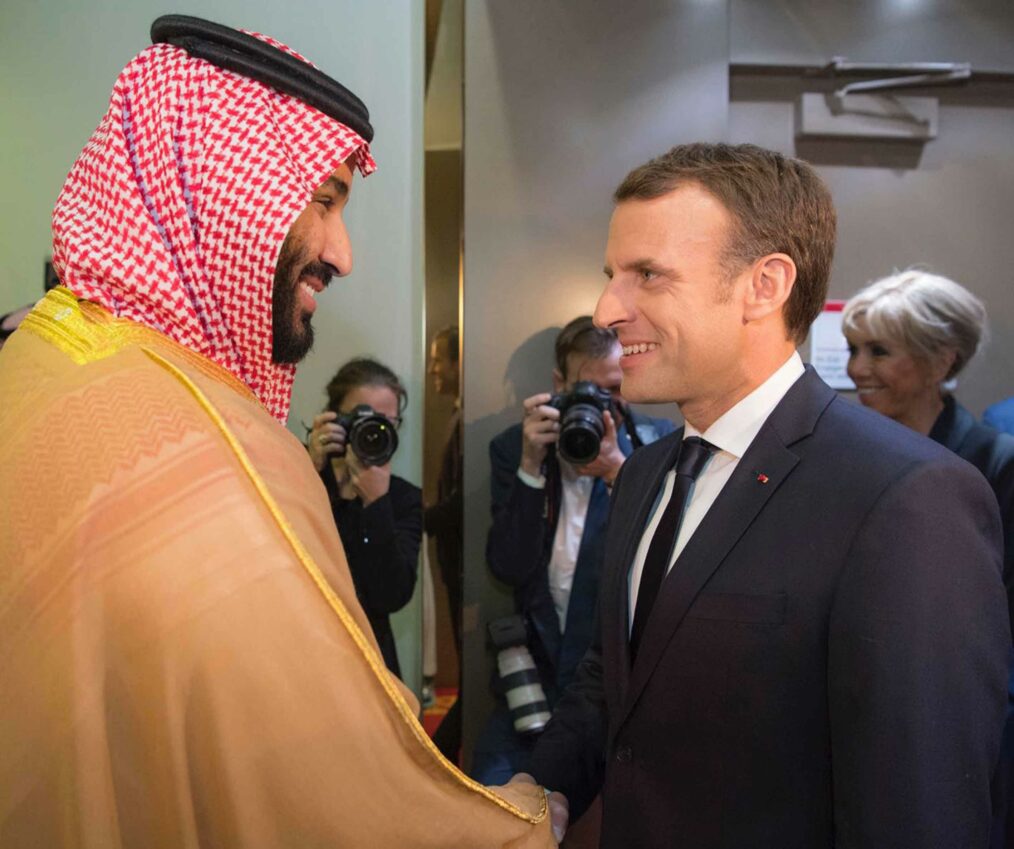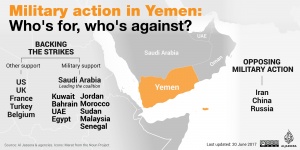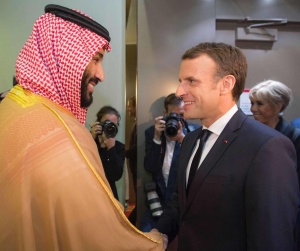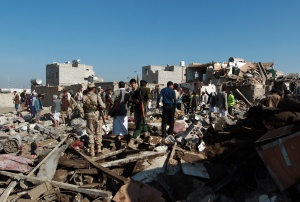
Legal Difficulties May Loom: Arms Sales Between The West and its Gulf Allies
According to John Irish and Emmanuel Jarry at Reuters, Saudi Arabia, and the U.A.E., “…are leading a coalition fighting the Iran-aligned Houthi group that controls most of northern Yemen and the capital Sanaa.” According to human rights groups’ legal counsel, “France faces heightened legal risks for supplying weapons to Saudi Arabia and the U.A.E. despite warnings such arms could be used in the war in Yemen,” (Irish). France’s arms sales to its two Gulf allies have been criticized for being used by the pair to take civilian lives, interfere with peace prospects and generally fuel the conflict in Yemen. France’s weapon sales to the two Gulf states could bring legal headaches in the months to come.
The conflict in Yemen between the Houthis and the international Saudi-led coalition has killed 10,000 people as of March 19th, 2018. Three million others are displaced. The conflict has shown few signs of de-escalation. More death, destruction, and displacement are expected unless the international community, the militias, and the countries engaged in the conflict agree to a ceasefire and peace-seeking dialogue. Unlikely. Each actor is committed to emerging victorious. Clearly, for the war to end, someone will have to lose or unlikely but significant concessions will be necessary from all.

https://www.aljazeera.com/mritems/Images/2017/6/22/6c2a986ceadd4321b5d7d274954426de_6.png
Saudi Arabia and the U.A.E. see France as one of their most reliable sources for arms in the world. Each state purchases tanks, armored vehicles, munitions, and artillery. The U.A.E. alone purchases fighter-jets from France. The United States and France have continued selling arms to the Saudi-led coalition, while other participants have reduced their weapon sales fearing their use in the conflict. France and the United States agree that Iran and its proxy rebels are threats to stability and peace in Yemen. Therefore, it is unlikely they will roll back their coalition arms sales.
According to Amnesty International, “France’s arms transfers are contrary to its international commitments. The French government has authorized exports of military equipment to Saudi Arabia and the U.A.E. in circumstances where these weapons can be used in the conflict in Yemen and could be used to carry out war crimes,” (Irish).
France would be wise to avoid seeming out of step with its stated commitment to human rights. It should adopt measures to more closely monitor the weapons it exports. Thusly, it can avoid selling to parties who use weapons on civilians as a matter of course. In turn, France’s beneficiaries in Abu Dhabi and Riyadh should be allowed to purchase on the condition that they candidly report how the weapons are being used to U.N.S.C.A.R. (the United Nations Trust Facility Supporting Cooperation on Arms Regulation).
France’s foreign ministry described government’s processes as, “…robust and transparent,” in response to questions about France’s licensing system for exports. To be clear, France does have a proven track record of supporting and cooperating in efforts to strengthen peace and security in Africa for years. This will most likely continue to be the case. In light thereof, a priority should be made of ensuring its weapons are not used in the service of violating international law.

http://i.hurimg.com/i/hdn/75/0x0/5a0563dad3806c138880878e.jpg
Privately, French officials have divulged that France has already told weapon suppliers to exempt themselves from pursuing new Saudi and U.A.E export licenses. This is, at a minimum, a symbolic attempt to reduce its weapons transfers to Gulf states. “I don’t think you’ll see a clear pushback from us,” one French diplomat told Reuters, “What’s more likely is an informal message to companies to not bother asking for licenses. It will be a de-facto restriction but without saying it publicly, so as not to annoy the Saudis,” (Jarry).
The probability that the Saudi-led coalition will use French weapons in operations that could take the lives of innocent Yemeni civilians is high. France should make clear to its Gulf allies that such eventualities are intolerable. As stated, it has taken steps but it must be explicit about protocol so missteps aren’t made during the anarchy and, so-called, fog of war.

http://media.beam.usnews.com/30/47/f08176344c37bca6e5de22ab0eb6/150326-yemen-editorial.jpg
The Yemen war has already cost too many lives. France and the United States have stated their commitment to returning Yemen to its people. The two western powers should commit themselves to pursuing a roadmap to reconstruction. They mustn’t leave the African nation in the tragic tatters that it finds itself in today.
Works Cited
Irish, John, and Emmanuel Jarry. “France Faces Legal Risks over Saudi, UAE Arms Sales: Lawyers.” Reuters, Thomson Reuters, 19 Mar. 2018, www.reuters.com/article/us-yemen-security-france/france-faces-legal-risks-over-saudi-uae-arms-sales-lawyers-idUSKBN1GV2ME.
“UNSCAR: UN Trust Facility Supporting Cooperation on Arms Regulation – UNODA.” United Nations, United Nations, www.un.org/disarmament/unscar/.
Aohruk. “UK Complicit in War Crimes through Arms Export to Saudi Arabia and UAE.” Arab Organisation for Human Rights in UK, aohr.org.uk/index.php/en/all-releases/item/7204-uk-complicit-in-war-crimes-through-arms-export-to-saudi-arabia-and-uae.html.
